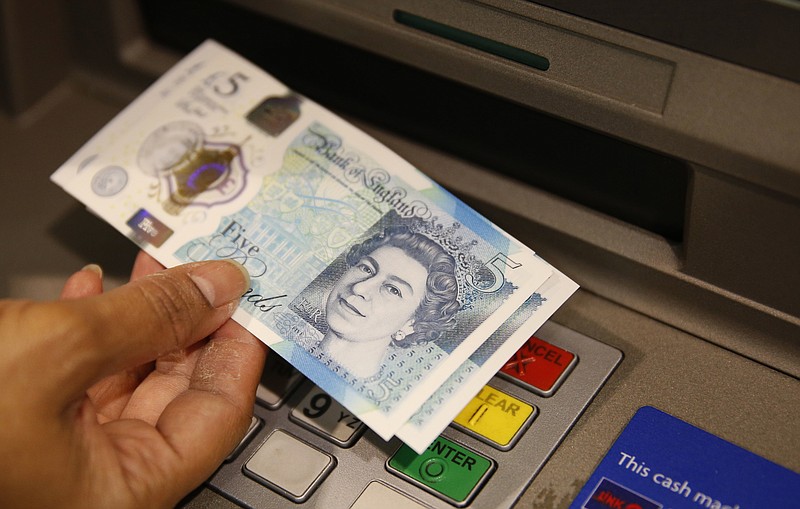The newly elected UK Prime Minister, Liz Truss, may have enjoyed the shortest honeymoon of any elected leader in recent memory. Inheriting an economy already struggling in the aftermath of Brexit and beset with soaring prices, the new PM last week took a decision that caused the British pound to sink to the lowest level in history against the US Dollar. Her freshly-appointed and inexperienced Chancellor of the Exchequer, Kwesi Kwarteng, announced a historic tax cut aimed primarily at higher income earners that put the PM squarely at odds with the Bank of England and rattled the bond market.
The tax cut plan is the largest in 50 years and will be financed by government borrowing. This is on top of a previously announced plan to subsidize energy costs for households and businesses, also debt financed. The move contrasts with both of her fellow Conservative Party predecessors, who maintained a commitment to raising taxes or cutting spending to reduce government debt and has placed the new PM at odds with many in her own party.
Ms. Truss is attempting to borrow a page from the playbook of Margaret Thatcher in applying supply-side tax cuts to revive a flagging British economy. However, Mrs. Thatcher was also a budget hawk who raised other revenue to pay for income tax cuts.
Like most foreign currencies, the British pound was already under pressure due to the recent surge in the US Dollar in response to aggressive rate hikes by the Federal Reserve. The Bank of England has also been raising rates in an effort to tame the highest rate of UK inflation in 40 years, and now finds itself battling against the government's fiscal policies that are pulling in the opposite direction.
Under more normal circumstances, raising benchmark interest rates would attract foreign capital and support the value of the country's currency. The Bank of England had been systematically hiking rates in 1/2 point increments since December to slow the economy and attempt to moderate price surges without spooking investors. Yet while Ms. Truss had campaigned on a platform of marginal rate reductions, the magnitude of the tax cuts sent shock waves through the UK bond and currency markets as investors began to question the government's commitment to financial stability and fiscal responsibility and its ability to coordinate with its own central bank. On Monday, the pound suffered its second-worst decline in a single day since Brexit, and UK government bond yields surged the most since at least 1979.
The government's move to slash taxes without consultation and outside the normal budget process spooked foreign investors and triggered a sudden flight of capital from British markets on Monday, while currency traders increased their wagers that the value of the pound would continue to slide.
The action caused a migraine for the British central bank. While its intention is to gradually raise interest rates to cool down prices, the PM blew up the plan. The BOE had recently announced its intention to begin selling off some of the government bonds it had purchased during its covid rescue economic mission in concert with its rate hikes to cool off inflation. In response to the severe market turmoil, the central bank was forced to reverse course and announce it would conduct additional purchases "on whatever scale is necessary" to restore order. The BOE's extraordinary reversal briefly calmed the bond market as yields on UK bonds fell a full percentage point and global stocks rallied. But the relief is likely to be short-lived and the pound resumed its decline as the BOE struggles to be the adult in the room while the kids throw spaghetti against the wall.
The Bank of England has an independent remit to control interest rates, and by tradition neither the government nor the bank comment publicly on policy moves by the other. But strains appeared after the BOE opposed leaving the EU, and the new PM has been openly critical of the bank's inflation targeting. The palpable tension is exacerbating global volatility. In an unusual move, the International Monetary Fund issued a statement urging the Prime Minister to reconsider her stimulus plan and work in concert with the central bank.
The plummeting pound spells trouble for British businesses and consumers. A weaker quid means higher prices in the UK for imported goods including food and energy, many of which trade in Dollars. It also means higher costs for British travelers who venture abroad, and greater interest costs for consumer and business loans. Two UK lenders temporarily halted mortgage issuance during the current turmoil and most expect rates to top 6% be early next year. Meanwhile, 2 million UK homeowners hold variable rate mortgages that will automatically reset higher in the weeks and months ahead with few options to refinance.
The standoff is unsustainable, and as one economist put it, "something's going to break." The BOE reiterated its commitment to the inflation fight, but economists now say rates will have to go much higher now thanks to the PM's actions. For its part, the government has promised a more fulsome accounting of its budget by November 23 but is not backing off its commitment to debt-funded stimulus. Mohamed El-Erian, president of Queens College, Cambridge, offered the analogy of "driving the car with the chancellor, foot on the accelerator, and the governor, foot on the brake." Should be an interesting ride.
Christopher A. Hopkins is a chartered financial analyst and co-founder of the Apogee Wealth Advisors in Chattanooga.
